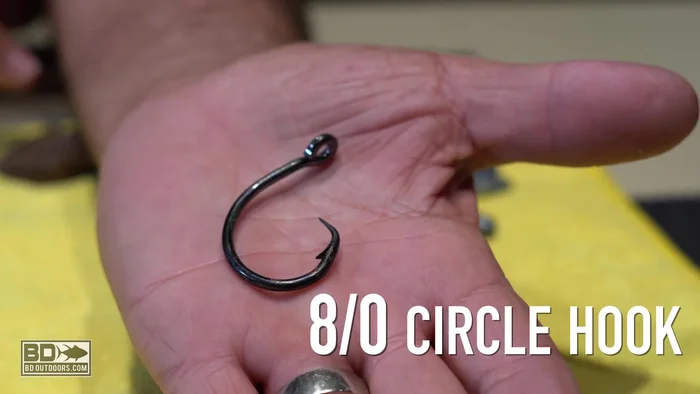The thrill of the fight, the power of the pull – landing a marlin, sea bass, or other prized game fish is an angler's ultimate dream. But success hinges on more than just skill and luck; the right hook is crucial. Choosing the wrong hook can mean the difference between a triumphant landing and a frustrating lost fish, impacting your overall catch rate significantly. This isn't just about picking any hook; it's about understanding the nuances of hook design, material, and size to match the specific target species and fishing conditions. From understanding barb styles and wire gauges to mastering the art of hook setting, we'll explore the vital considerations for maximizing your success.
This ultimate guide will equip you with the knowledge to select the perfect hook for any situation, dramatically increasing your chances of landing that trophy fish. We'll delve into a step-by-step process to guide you through hook selection for marlin, sea bass, and a variety of other species, ensuring you're armed with the knowledge to conquer the water. Prepare to refine your tackle box and elevate your angling game!
Safety Guidelines
- Always use hooks appropriate for the target species and their size. Using too small a hook can result in lost fish, while too large a hook can injure the fish or make it more difficult to hook.
- Sharp hooks are crucial for a secure hookset. Regularly check and sharpen your hooks before each fishing trip. Dull hooks will result in more missed fish.
- Handle hooks carefully to avoid injury. Use pliers or hook removers to remove hooks from fish and yourself, and always dispose of used hooks responsibly.
Methods: Circle Hooks for Marlin
Tools Needed
Step-by-Step Instructions
Hook Setting with Circle Hooks
- Use taught circle hooks for hooking the fish.
- The tension of the water alone will set the hook in the fish's mouth.
- This will hook the fish in the corner of the mouth.

Hook Setting with Circle Hooks Hook Selection for Experienced Anglers
- For anglers who can feel the bite, use a long shank 7/0 hook to prevent the hook from being sawed off.

Hook Selection for Experienced Anglers
Tips
- A longer shank hook helps land more fish because it's less likely to get sawed off.
Methods: Thin Wire Hooks for Sardines
Tools Needed
Step-by-Step Instructions
Hook Selection
- Use a 4/0 thin wired hook for sardines.
Understanding the Advantage
- Thin wire allows the sardine to swim naturally, increasing the chances of a bite.

Understanding the Advantage
Tips
- Thicker wire restricts the sardine's movement, making it less appealing to the fish.
Methods: Live Squid Rigging for Sea Bass
Tools Needed
- Orange LED head with a 6/0 thin wire hook
- 4/0 hook
- sliding sinker
- bullet weight
Step-by-Step Instructions
Hook Selection and Weighting
- Use an orange LED head with a 6/0 thin wire hook for live squid.
- Alternatively, use a 4/0 hook with a sliding sinker.
- Start with a small sinker (1/8 to 1/4 ounce) and adjust depending on the current and water depth. Avoid letting the bait rest on the bottom.
- Use a bullet weight to make the hook almost invisible. Place the bullet so the eye of the hook goes up inside the bullet weight.


Hook Selection and Weighting
Tips
- The orange LED head attracts fish.
- Keep the bait moving slowly through the water column to increase your chances of catching sea bass.
Read more: Sharpen Fishing Hooks Like a Pro: Two Easy Methods for Razor-Sharp Hooks





